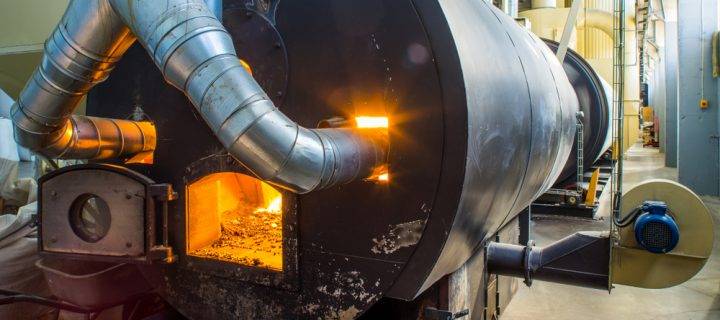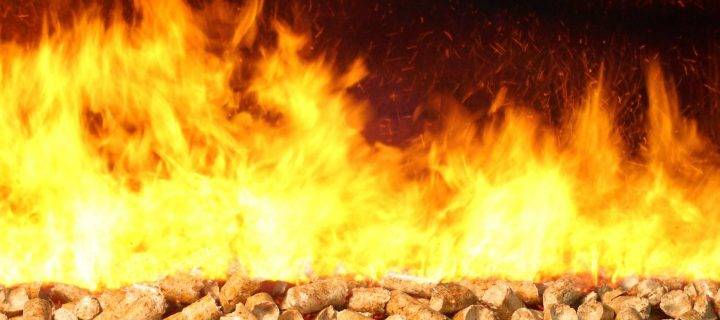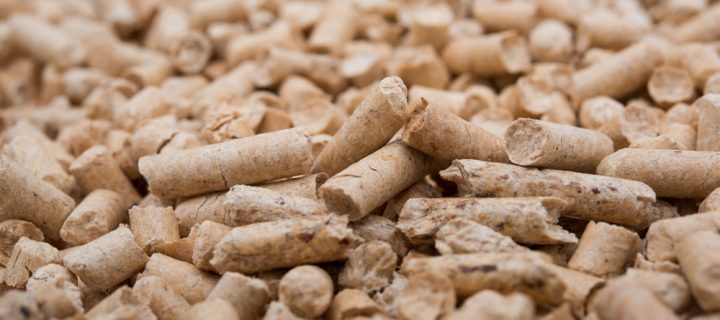When installing a biomass fuel boiler, the tradesperson carrying out the task can advise you on the best boiler for your home and requirements. Each different renewable heating system has its own benefits so it can be tricky to have a definitive answer. When it comes to your average biomass boiler you will want something similar to your existing system, with the changes being more practical and not necessarily noticeable. To achieve the desired outcome, there are a number of factors to take into consideration, which we have listed below. 3 Factors to Consider for Biomass Fuel Boilers Size – Wood chip boilers often take up the most room, making them suitable for larger properties. However, pellet boilers can occupy less space because of their smaller size but are still able to heat a room just as effectively. If you are looking to install a renewable heating system, you will probably need an average-sized biomass boiler that won’t feel cramped in the space. They are slightly larger than their gas and oil counterparts but with further developments of wood pellet boilers, they are fast becoming a more popular heating option for modern homes. Cost – The prices of biomass boilers varies, depending on whether you want a larger system or a more cost-effective domestic one. Automatic and semi-automatic fed boilers typically cost more than manually fed versions, such as a log boiler. The cost of running a biomass boiler centre around the fuel type used, as maintenance costs do not really differ. Buying bulk pellets (from a supplier such as P.H Winterton) is the most cost-effective and allows for quality heating which is far cheaper than the costs of a traditional boiler. It is also worth considering that you can recover a percentage of your up-front expenses through the Renewable Heating Incentive, which earns you money for using a renewable heating system. Efficiency – Biomass heating systems have an efficiency of 80% or above, making them regularly more efficient than a standard gas boiler. Other factors to consider is the existing heat flow and insulation in your home plus the size of the space being heated. For the most efficient renewable heating system, P.H Winterton would recommend using wood...
Read Moreabout What Type of Biomass Fuel Boiler Should I Install?It is completely up to you how you implement any heating system (such as a biomass fuel boiler) in your home or business, but there are particular integrated systems that help to get the best out of them. Biomass boilers are one of the best renewable heating systems and are able to provide a reliable heating source all year round. It is important to clarify the uses of this system with regards to your heat demands. For our latest post, P.H Winterton will compare the different biomass fuel heating systems. Comparing Biomass Fuel Heating Systems Part of Integrated/Hybrid Heating System – A great way to guarantee powerful heating, is to implement an integrated or hybrid heating system. This allows for the use of a traditional boiler alongside a renewable source which creates a synergy for the best heating possible. The traditional heating acts as a backup if the renewable heating source is underperforming, meaning you can switch between them for optimal warmth. Biomass boilers are not frequently used this way, but if it is possible in the property it could be an option. Using with Another Renewable Heating System – This a great way to be fossil fuel-free, with a boiler working with a system such as an air-source heat pump to have fully renewable heating sources around your home. This dual system will make use of both sources, switching between whichever is most useful. Standalone Heating System – One big advantage of biomass boilers is that they are incredibly useful on their own, creating enough heat all year round without any real drop off during winter. When compared to other renewable heating systems this is crucial. It is possible that in many cases to completely replace the conventional system already in place and use this replacement and still have sufficient heating. You will also be lowering your environmental impact and can earn money back through the Renewable Heating Initiative (RHI). It is hard to argue against biomass boilers, as they are arguably the best renewable heating system of recent years. There are plenty of benefits such as carbon neutral heating and cheaper running costs when compared to standard boilers. If you are thinking about making the switch to...
Read Moreabout Can Biomass Fuel Boilers Be Used on their Own?If you are considering a biomass fuel boiler, you will probably know that it will need more maintenance than a regular gas boiler. A gas boiler needs to be assessed by an engineer every year, but a biomass boiler needs more regular care. Although most of the tasks are pretty straight forward, it is worth considering before committing to the extra time and effort. P.H Winterton and Son are of the Government-approved biomass suppliers, with our wood pellets used by customers all over the country. For this blog, we will talk you through the maintenance of biomass boilers. Attention to Detail Needed for Biomass Fuel Boilers The amount of attention needed for your boiler will ultimately depend on the model and type of fuel you use. Wood logs, chips and pellets all burn differently and create varying amounts of waste. Some high-end biomass boilers have extra features which mean that they can look after themselves (to an extent). To keep the system running efficiently and to make sure you have a decent return on investment, it is crucial to provide sufficient maintenance. Here are some points to consider – Daily – A visual inspection and cleaning of any components where needed Weekly – Check the ash level and empty if needed and check gear motors for oil leaks Monthly – Scrape the combustion chamber, removing any bad ash and checking the grate Every 3 Months – Wipe the flue gas sensor and clean the lambda probe and check the grate Every 6 Months – Check and clean the flue gas return, inspect the operational drives, check the motors, clean the heat exchangers and clean the combustion chamber Annually – This check will usually be carried out by your installer. Tasks include multiple checks plus cleaning the flue and greasing the bearings Get in Touch for More Information If you have any questions about biomass fuel boilers, please do not hesitate to contact P.H Winterton today. We are the leading provider of equine bedding for customers across Staffordshire, Cheshire and...
Read Moreabout Understanding Biomass Fuel Boiler MaintenanceAs the winter chill starts to bite, it is now more important than ever to ensure your stable of horses is staying healthy. P.H Winterton and Son are the leading suppliers of equine bedding across the country, and with our years of experience, we know a thing or two about caring for horses. For this post, we have put together some essential tips to help you through the next few months. High-Quality Equine Bedding and other Care Tips Feeding – In terms of feeding, forage should form the basis of every horse’s diet. Forage is especially important during winter when the grass is not readily available or turnout time may be restricted. This also helps keep the horse warm acting as an in-built heating system which creates heat as it breaks down in the digestive system. Feeding in the Field – Additional forage may be needed to feed horses living out, depending on the amount of grass available. When adding extra forage in the field, ensure there are more piles of hay than there are horses to stop any conflicts. Keeping Hydrated – During winter it cannot be underestimated, the importance of your horse having plenty of fresh and clean drinking water. A 16hh horse requires at least 6 gallons of water every day, and some horses can need up to twice this amount. Water is crucial for hydration and digestion. It is also important to check the water troughs twice a day and to break and remove any ice. You may also want to fill containers with water as an emergency supply. For stabled horses, adding some warm water into their buckets prevents the water from freezing overnight which could encourage a horse to drink if they do not like the colder water. Bedding – One of the most crucial parts of keeping your horses happy is giving them the best bedding to rest on. P.H Winterton and Son provide three different types of equine bedding to suit every budget, including our newest product – Zebra Fibre bedding. Got any Questions? Contact Us Now If you have any questions about our range of equine bedding or need any advice about horse care this winter, please do not hesitate...
Read Moreabout Winter Care Essentials for HorsesFor many years P.H Winterton and Son have been providing the finest quality of wood chip pellets which can be used as the sustainable energy source – biomass fuel. We first started producing biomass energy because joineries were struggling to dispose of surplus wood, and because of this, we were able to market this as a product and alternate energy source. Because of their low energy densities, biomass fuels have become one of our most popular products. We only use grade A wood residue from sawmill waste collections which can be burnt in a boiler for industrial heating and electricity. The wood pellets can also be used in specific stoves for the heating of homes. Why Should I Use a Pellet Stove? Here are six advantages of using a pellet stove – 1. Temperature Adjustment, Programming and Remote Control – Some models of pellet stove allow you to adjust the temperature with a remote control or a room thermostat. Other models can be programmed or operated daily or monthly via text message or a mobile app. The pellet stove will start to burn and go out without you having to do anything, depending on the programme you choose. 2. Up to 90% Efficiency – Pellet stoves can be up to 90% efficient, meaning only 10% of the energy generated by the wood pellets (biomass fuel) is lost in the chimney. 3. No Special Chimney Required – A pellet stove that is equipped with an active smoke extraction system, meaning there is no need for a special chimney because the combustion gases can be blown into an existing chimney. The smoke can also be extracted by using an ordinary thin tube that runs horizontally through an outer wall, even when it is kinked. 4. Autonomy from 12-36 Hours – The pellet reserve in your wood pellet stove has an autonomy of roughly 12 hours at full power. This means your stove must be filled manually once or twice a day. 5. Convenient and Cheap Fuel – P.H Winterton’s biomass fuel is extremely cost-effective compared with other fuels. The consumption of pellets depends on the size and insulation of the room to be heated, on the heating time plus the desired...
Read Moreabout The Importance of Biomass Fuel Wood PelletsRecent research from specialists Enviva has shown how the use of biomass fuel and wood pellet electricity will impact on the environment. The study helped to explain the carbon impact of wood pellet energy plus its sustainability. As part of the research, it was revealed the greenhouse gas impacts of wood pellets plus their emissions from the wood pellet supply chain. They also compared the performance of electricity generated using wood pellets against other fuels such as coal and natural gas. For this blog, P.H Winterton is going to look at the Enviva report in greater detail and explain the many reasons to use biomass fuel. Why Biomass Fuel Is More Important Than Ever For steady-state working forests, you will get the same net climate impact result, no matter the sort of assumptions used for carbon accounting. Crediting biogenic carbon uptake before combustion will present the same result for working forests plus the carbon-debt accounting approach. This is assigned at the time of combustion and will be repaid as the forest regrows. Renewable, baseload bioenergy enables the renewable electric grid. The carbon benefits of good biomass fuel are clear. The report explains that wood sourced sustainably is a by-product traditional timber harvest where the land returns to forested use. Biomass is essentially a natural storage vessel for energy from the sun with trees from working forests continuously recycling carbon from the atmosphere to trees and back. In contrast, fossil fuels represent a one-way trip for carbon from geologic storage to the atmosphere. As long as the requirements for quality biomass are met, greenhouse gas emission can be mitigated by substituting bioenergy for fossil fuels. Get in Touch for More Information If you would like to know more about biomass fuel, please do not hesitate to contact P.H Winterton and Son today. We are proud to be part of the UK government Biomass Supplier List; meaning you will always get the finest wood pellets from...
Read Moreabout How Biomass Fuel Impacts the Environment



